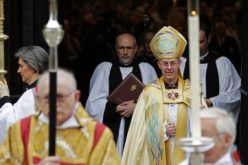Witnesses and defendants could no longer be able to swear on the Bible in British courts, under controversial proposals being considered by a body of magistrates.
The Magistrates’ Association will debate the idea in a meeting later this month, despite the existence of alternative promises for those who don’t want to swear on the Bible.
The idea has been criticized by Bishop Nazir-Ali, who says this could be the “slippery slope toward the increasing secularization of society.”
He says, “The Bible is bound up with the constitution, institutions and history of this country.”
And the Rev. Arun Arora, director of communications for the Church of England, says, “This kind of proposal seems driven more by blinkered campaigning agendas than abiding interests in justice and truth.”
Bristol magistrate Ian Abrahams proposed scrapping the oath, saying, “More and more I see people shrug their shoulders or say ‘Whatever’ when asked to take it.”
He adds, “I’m suggesting we take holy books out of the process. Instead, people will have to show they understand they could be sent to prison if they don’t tell the truth.”
Under Abrahams’ plan, the oath would read, “I promise very sincerely to tell the truth, the whole truth and nothing but the truth and I understand that if I fail to do so I will be committing an offense for which I will be punished and may be sent to prison.”
The National Secular Society (NSS), a secularist pressure group, has welcomed the proposals, saying that institutions should reflect the way “Britain is not the Christian country it perhaps once was.”
Stephen Evans, NSS campaigns manager, says, “A single oath for all would protect witnesses of all religions and beliefs, including nonbelievers, from the potential religious prejudices of jurors.”
A spokesman for the Ministry of Justice says, “We have no plans to change the arrangements for swearing an oath or making an affirmation in court, which have worked well for many years and still do.”











